Discover Thailand (17): the Economy
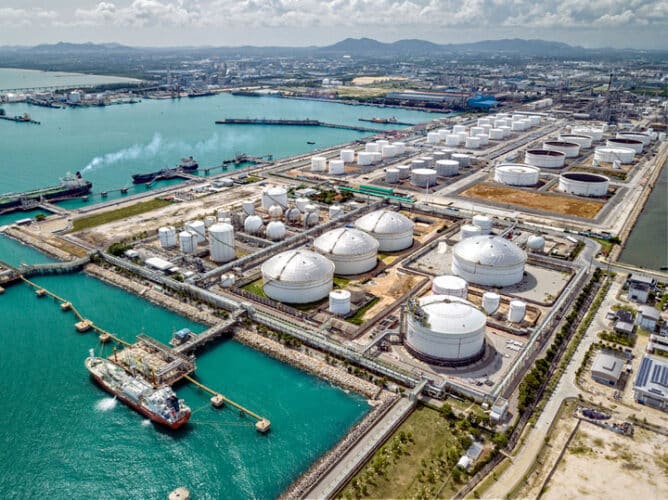
Thailand's economy is one of the strongest and most diverse in Southeast Asia. The country is the region's second largest economy after Indonesia and has a growing middle class. Thailand is a major exporter of goods such as electronics, vehicles, rubber products and agricultural products such as rice and rubber.
The service sector is the largest contributor to Thailand's gross domestic product (GDP), followed by the industrial and agricultural sectors. The tourism sector is also an important source of income for the country, with more than 35 million visitors per year (before the Covid pandemic).
The government plays an important role in the Thai economy and strives for a balanced development of the various sectors. There are many government programs that focus on the development of the agricultural sector, infrastructure and social services. There are also many international companies based in Thailand, including factories of electronics and other goods. The country also has a thriving export-oriented economy, with a large number of trading partners around the world. In recent years, Thailand has faced a number of economic challenges, including high unemployment and rising inflation. But despite these challenges, the country's economy continues to grow and develop.
The Thai economy is known for its strong export-oriented growth. The country is one of the largest exporters of electronics, textiles, auto parts and foodstuffs in the world. Thailand's main trading partners are the United States, China, Japan and the European Union.
Trading partners
Thailand's main trading partners are China, the United States, Japan, Malaysia and Singapore. Together, these countries account for more than half of Thailand's total exports and imports. Thailand mainly exports industrial goods such as electronics, car parts, clothing and furniture. The main export markets for Thailand are China, the United States, Japan, Australia and Malaysia.
Thailand mainly imports raw materials and semi-finished goods for further processing and export. The main import markets for Thailand are China, the United States, Japan, South Korea and Malaysia.

Asean
Asean Membership
Thailand is a member of the Association of Southeast Asian Nations (ASEAN), an organization of ten countries in Southeast Asia founded in 1967 to promote regional cooperation and economic integration. Thailand is a founding member of ASEAN and has played an important role in promoting regional cooperation within the organization. The country has also contributed to economic integration within ASEAN by participating in initiatives such as the ASEAN Free Trade Area (AFTA) and the ASEAN Economic Community (AEC).
Membership in ASEAN can provide Thailand with several benefits, including access to larger markets, promoting economic integration and political stability, and providing a platform for regional cooperation in areas such as the environment, humanitarian aid and security.
Thailand has also participated in several ASEAN-related regional and international initiatives, such as the ASEAN Regional Forum (ARF), a platform for political and security dialogue, and the ASEAN Plus Three (APT), a collaboration between ASEAN, China, Japan and South Africa. Korea. As a member state of ASEAN, Thailand plays an important role in regional integration and cooperation in Southeast Asia and continues to work towards the further development of the organization.
Thailand as a low wage country
Thailand is a country with low wages compared to other developed countries. This means that it can be attractive for companies to produce in Thailand, because they have to pay less in labor costs. This could lead to increased investment in the country and could contribute to Thailand's economic growth. However, low wages in Thailand are also a source of social inequality and labor unfriendliness. Many workers in Thailand receive low salaries and little protection at work. This can lead to poor working conditions and a low standard of living for some workers.
Thailand's economy depends on several sectors, including tourism, exports of industrial goods, and agriculture. However, the agricultural sector has lagged behind the industrial and tourism sectors and is less efficient than other countries in the region. This has led to an increasing gap between rich and poor populations in the country. Despite the challenges Thailand faces, the country remains a major player in Southeast Asia's economy and continues to work on improvements to raise the living standards of its people.
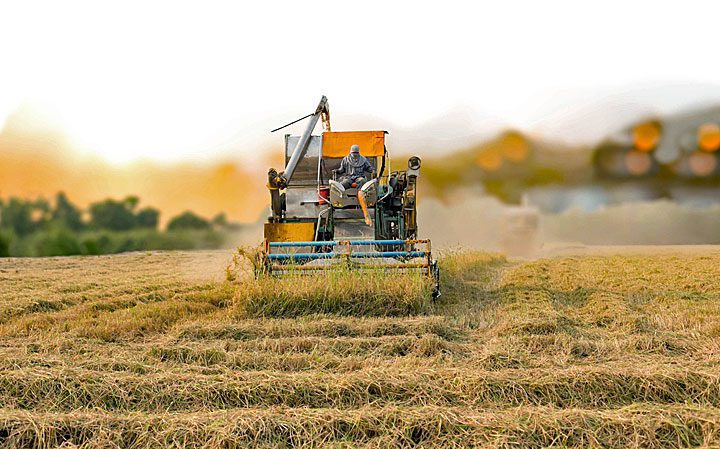
Rice export
Thailand is one of the largest rice exporters in the world. The country accounts for about 10% of global rice exports and is the second largest rice exporter after India.Rice is an important crop in Thailand and the country has a long history of rice production. Thailand's rice fields are mainly located in the central and northern part of the country. The rice most commonly grown in Thailand is jasmine rice and rice used to make glutinous rice. Jasmine rice is a rice with a long, soft and aromatic grain, while glutinous rice has a short thick grain and is used for the production of rice noodles and rice paper.
Thailand accounts for significant rice exports to several countries around the world, including China, Indonesia, Malaysia, the Philippines, Bangladesh, Vietnam, Egypt, Iran, Kuwait, and the United Arab Emirates. Rice is also an important source of income for many farmers in Thailand and thus plays a vital role in the country's economy.
However, there are also challenges that Thailand faces in terms of rice exports. For example, fluctuating rice prices and competition with other rice exporting countries affect Thailand's rice exports. There are also concerns about the sustainability of rice production in Thailand, particularly in terms of water use and agrochemicals.

Artigone Pumsirisawas / Shutterstock.com
Auto industry
Thailand has a thriving automotive industry and is a major hub for car manufacturing and export in Southeast Asia. The country is responsible for about 12% of global car exports and is the second largest car exporter in the region after Japan. There are many major international car manufacturers based in Thailand, including Toyota, Honda, Nissan, Ford, General Motors and BMW. These manufacturers mainly make small and medium-sized cars for the Thai and export markets. Thailand is also home to a number of major Thai car manufacturers, such as Isuzu, Mitsubishi and Suzuki.
The Thai automotive industry also has a significant supply chain with many Thai companies manufacturing and exporting automotive parts. This supply chain is a major driver of Thailand's economy and accounts for a significant portion of the country's industrial output.
However, there are also challenges facing the Thai automotive industry. For example, the strong dependence on exports can lead to volatility in sales figures due to fluctuating exchange rates and changing demand in other countries. There is also competition from other countries in the region that are also active in the car industry, such as China and Indonesia. In addition, there are concerns about the sustainability and environmental impact of the automotive industry, particularly in terms of harmful gas emissions and the use of raw materials.
Tourism
Tourism plays an important role in Thailand's economy. It is one of the main sources of income for the country and has contributed to Thailand's economic growth. In 2019, tourism was responsible for about 20% of the country's gross domestic product (GDP). Tourism in Thailand is boosted by the beautiful beaches, the cultural attractions and the cheap cost of living. The country attracts millions of tourists from all over the world every year.
Tourism can also create jobs for the local population and contribute to the development of infrastructure, such as hotels, restaurants and transport. Income from the sale of goods and services to tourists, such as souvenirs, food and drink, and transportation, is also important to the economy. However, it can also lead to pressure on local housing and the natural environment if not managed in a sustainable manner. In recent years, Thailand has worked hard to develop sustainable tourism initiatives to ensure that tourism continues to contribute to the country's economy without harming the natural environment and local communities.
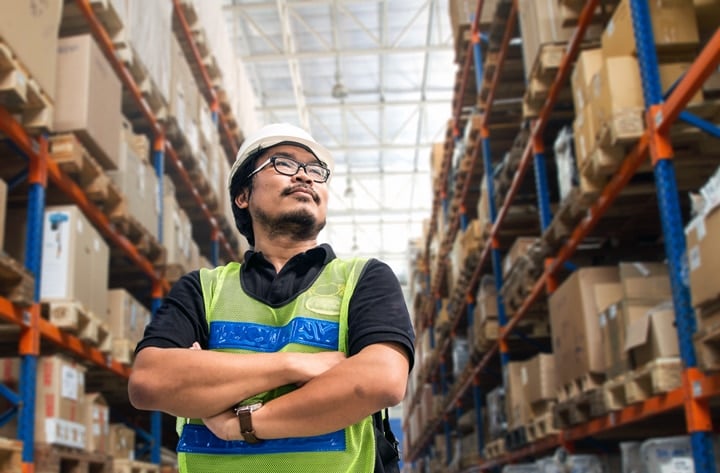
competitors in the region
Thailand faces competition from other countries in the global market, especially in Southeast Asia, where the country is a major player. Thailand's main economic competitors can vary depending on the specific industry in which the country operates.
- In terms of industrial goods, China is a major competitor for Thailand. China is the world's largest exporter of industrial goods, competing with Thailand on price and efficiency.
- In the field of agriculture, Vietnam is a major competitor for Thailand. Vietnam is a growing player in the world market for agricultural products, such as rice and coffee, and can compete with Thailand on price and quality.
- In terms of tourism, Thailand can compete with other countries in the region, such as Malaysia, Indonesia and the Philippines, which are also popular with tourists.
- Thailand can also compete with other countries in service industries, such as IT services and finance, and with other countries operating in the supply chain.
To remain competitive in the global market, it is important for Thailand to keep innovating and adapting
Invest in Thailand
Thailand may be an attractive country to invest in for some investors due to several factors, such as:
- Convenient location: Thailand has a favorable location in Southeast Asia and is an important gateway between China and India. This could make the country attractive to companies looking to take advantage of the growing economies of these two countries.
- Stability: Thailand has a long history of relative political stability and is free from natural disasters (with the exception of floods). This can make the country attractive to investors looking for a stable environment in which to invest.
- Low costs: Thailand has low labor and production costs, which can make it attractive to companies looking for a cheap place to produce.
- Diversity of the economy: Thailand has a diverse economy with strong sectors such as tourism, export of industrial goods and agriculture. This can provide investors with several options to invest in.
However, there are also challenges that investors in Thailand may face, such as a sometimes opaque legal system, intellectual property issues and limited credit availability. Investors should therefore be well informed before deciding to invest in Thailand.
Dutch and Belgian companies in Thailand
There are many Dutch companies that have established themselves in Thailand. Here are a few examples:
- Shell: Shell is one of the largest oil and gas companies in the world and has established itself in Thailand with several oil and gas installations and gas stations.
- Unilever: Unilever is a multinational company that produces and sells food, personal care and household products. The company has a significant presence in Thailand with several production sites and offices.
- Heineken: Heineken is a beer producer with a presence in more than 70 countries. The company has a brewery in Thailand and also sells other beer brands in the country.
- AkzoNobel: AkzoNobel is a chemical company that makes products for the paint and coatings industry, as well as for the paper and cellulose industries. The company has a presence in Thailand with several production sites and offices.
- Ahold Delhaize: Ahold Delhaize is a multinational supermarket chain with branches in several countries, including Thailand.
There are many Belgian companies that have established themselves in Thailand. Here are a few examples:
- AB InBev: AB InBev is the largest beer producer in the world and has a presence in more than 50 countries. The company has a brewery in Thailand and also sells other beer brands in the country.
- Solvay: Solvay is a chemical company that makes products for the aerospace, automotive, electronics and more industries. The company has a presence in Thailand with several production sites and offices.
- Delhaize: Delhaize is a supermarket chain with branches in various countries, including Thailand.
- Umicore: Umicore is a technology company active in the production of materials for the electronics industry, the automotive industry and more. The company has a presence in Thailand with several production sites and offices.
- Bekaert: Bekaert is a company that produces and sells technical fibers and cable coating products. The company has a presence in Thailand with a production site and offices.
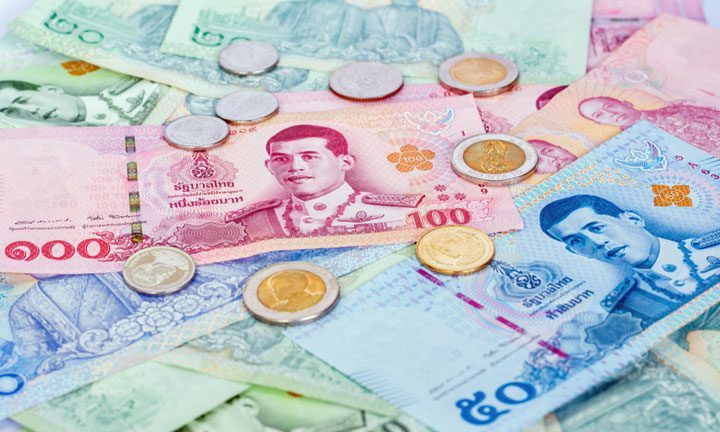
The Thai baht
The Thai baht is the official currency of Thailand and is used for all financial transactions in the country. The baht is named after the silver that was once used as currency in Thailand.
The value of the baht depends on various economic factors, such as inflation, interest rates and the demand for the currency. If the demand for the baht increases, the value of the currency may rise, while a fall in demand may lead to a decrease in the value of the baht. The baht has experienced periods of weakness and strength in the past, and the value of the currency can fluctuate in response to changes in the economy. This can affect the prices of goods and services in Thailand and the purchasing power of the population.
The Thai government has taken several measures to stabilize the value of the baht, such as limiting inflation and managing interest rates. This can help keep Thailand's economy stable and maintain the purchasing power of the population.
The fair
The Stock Exchange of Thailand, also known as the Stock Exchange of Thailand (SET), is a major player in the country's economy. The SET was founded in 1975 and is based in Bangkok. It is one of the most important stock exchanges in Southeast Asia, providing a platform for companies to sell and buy stocks and invest in the Thai economy.
Thailand's stock market is influenced by various economic factors such as inflation, interest rates, exchange rates and the demand for Thai products in the global market. If Thailand's economy grows, it can lead to an increase in stock market values, while a downturn in the economy can lead to a decrease in stock market values. The stock market of Thailand also offers a number of investment options for investors such as stocks, bonds and mutual funds. Investors can benefit from the growth of the Thai economy by investing in the Thailand Stock Exchange. However, investing in the Thailand stock market can also involve risks such as volatility and the loss of capital. Investors should therefore be well informed before deciding to invest in the Thailand stock exchange.
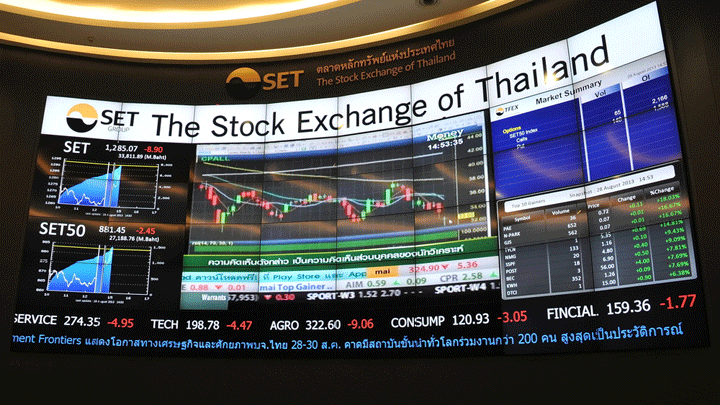
Economic growth prospects
Thailand's economic growth depends on several factors such as the demand for Thai products in the global market, the tourism sector, infrastructure development and domestic consumption. Thailand has experienced significant economic growth in the past and is considered one of the emerging economies in Southeast Asia. However, Thailand's economy has also faced challenges such as high levels of debt, an opaque legal system and limited credit availability.
Going forward, Thailand's economy can benefit from the growing economies of the region, including China and India, and the increasing demand for Thai products in the global market. The country is also working to improve infrastructure and promote sustainable development to maintain economic growth. However, Thailand's economy may also face challenges such as the impact of the COVID-19 pandemic, global market uncertainty and increasing international competition. It is therefore difficult to make precise predictions about Thailand's economic growth prospects.
Challenge the Thai economy
There are a number of challenges and issues currently facing the Thai economy:
- Declining confidence in the banking and financial system. This can lead to a decline in investment and consumer confidence in the economy.
- A decrease in exports. Thailand relies on the export of goods such as electronics and car parts, and a decrease in demand for these goods could lead to a decline in economic growth.
- A high national debt. Thailand has a high national debt, which can lead to higher interest rates and restrictions on government spending.
- Declining productivity. Productivity in Thailand has declined recently, which may lead to a decline in competitiveness and economic growth.
- A lack of flexibility. Thailand faces a lack of flexibility in the labor market, which can lead to inefficiency and a decrease in productivity.
- A dependence on a single sector. Thailand relies heavily on the tourism sector, which can lead to economic volatility if there are changes in tourism demand.
- Declining population growth. Thailand is experiencing declining population growth, which could lead to a decline in demand for goods and services and a slowdown in economic growth.
- Thailand has to deal with various environmental problems, such as air pollution, water pollution, waste problems and the decline of biodiversity. These problems can be caused by several factors such as the growing economy of the country, increasing population and increasing demand for raw materials.
- There are still challenges to the educational attainment of workers in Thailand, such as a shortage of professional training opportunities in some parts of the country and a lack of access to training for some groups, such as women and workers in the informal sector.
Stimulation of the economy by the Thai government
The Thai government has taken several measures to develop the economy, including:
- Offering tax credits and grants to businesses to encourage investment.
- Strengthening the education and training system to improve workers' skills and increase productivity.
- Promote exports by supporting Thai companies' participation in international fairs and strengthening trade relations with other countries.
- Promoting tourism by strengthening infrastructure and attracting visitors through marketing campaigns.
- Developing new industries, such as the high-tech industry, to diversify the economy and reduce dependence on a few sectors.
- Tackling the problems in the labor market by strengthening the labor inspection and promoting collective bargaining.
- Promoting entrepreneurship and supporting small and medium-sized enterprises to stimulate growth.
In general, Thailand's economy is stable and versatile, and the country is known as a major player in the Southeast Asian region and in the global market.


Interesting article, but how the author arrives at the following is a mystery to me:
Stability: Thailand has a long history of political stability…….
For the rest; what I have always understood is that the tax for wealthy Thais is relatively low (see also the large number of very exclusive cars in, for example, Bangkok). If the government would raise taxes for these people considerably, this could be used, among other things, to improve the existing roads and sidewalks in Thailand. New roads are being built at various locations, but the existing roads are very bad in a large part of Thailand.
Of course there have been many coups d'etat, but that has not had a negative impact on economic developments. Also, no (foreign) companies have been nationalized after a coup. So if you look at the economy, that hasn't caused instability.
That's totally right Peter, but then this should also be described that way in the article. There is now simply a falsehood that can mislead people who are unfamiliar with Thailand.
The baht บาท with pronunciation long -aaa- and low tone, is a unit of weight, namely 15 grams. In a monetary sense it is then 15 grams of silver. Also เงิน ngeun money means silver.
Although economic growth is important, I find the distribution of that growth even more important, but unfortunately little is said about it. Does it mainly go to the less fortunate or mainly to the already rich?
Oh yes, and a baht of gold is, to be more precise, 15.244 grams of gold.
Excuse me, one more:
Quote “Addressing labor market problems by strengthening labor inspection and promoting collective bargaining.”
That is patently incorrect. The government in Thailand has always opposed unions, with the possible exception of a few state-owned companies.
I still miss a 'challenge' in the list of “Challenges for the Thai economy”, namely. the corruption.
In recent history, corruption in Thailand has reached an all-time high ((Trying) “To be number one”(?)).
https://tradingeconomics.com/thailand/corruption-rank
https://www.bangkokpost.com/thailand/general/2253227/thailands-corruption-standing-slides
This while the regime of the 3 P's promised to tackle corruption after their coup on May 22, 2014.
A report for 2022 will soon be published with a disappointing ranking for Thailand.
Also in the list “Stimulating the economy by the Thai government” I miss the approach/combating corruption. The less corruption, the better for the whole country.
Where does this whole Economy PR story come from anyway?
It also always remains typically Dutch to immediately attack everything while people do not know how the political powers in TH work.
Everything described in the piece are long-term goals. Corruption is in the DNA and it will take a few decades before it is almost eradicated.
In NL, some wish for a smoke-free generation and that game has been going on for 30 years.
This week I saw a Mercedes Brabus of 50 million baht (1,7 million euros) driving over Thonglor, which costs only 660.000 euros in the Netherlands. The time when this could be arranged under the table is long gone with the arrival of DSI and AMLO.
Some things just take time to form and the speed depends on the population itself. For now there is no dictator in power so give it time.
Quote:
'It always remains typically Dutch to immediately attack everything while people don't know how the political powers in TH work.'
No one on this blog is 'squatting' Thailand, Johnny. No society is perfect, so why not criticize every now and then. Moreover, in my criticism very often based on Thai sources, many Thais simply agree with me.
Many Thais simply agree with me. That's not a very strong argument Tino. Just depends who you ask. When I ask my football friends if a draft beer is too expensive, everyone also says yes
Indeed, it is not an argument to seek the truth, but to Johnny's argument that complaining is typically Dutch. Thais complain just as loudly and often about the same topics as I discuss.
Dear Tina,
What I miss about your story is that it should be understood that things take time to change.
You know the history of the country and know that building a democracy takes time. Always whining about what goes wrong makes someone a sour person and complaining is for the losers. As your blog son always says "Is the glass half full or half empty"
I see complainers as half-empty thinkers and they act accordingly. It's about what you do and not what someone else tells you to do. The latter is not too bad in TH, but it has to be learned that nothing is for nothing and TH is not NL.
The boat trip on the Saen Saep canal in BKK cannot even exist in NL because it is too dangerous. Should this then be abolished because other values apply in NL?
Your own circle of acquaintances is also just a bubble, so not necessarily the norm of a country.
Quote:
' Always whining about what goes wrong makes someone a sour person and complaining is for the losers. '
Always? Why are you exaggerating like that?
What I'm saying is that very rarely whine and complain. I'm just telling what's happening in Thailand, and even if that's an annoying thing, that's not a complaint. And again, almost always following Thai comments.
According to you, I should only talk about nice things in Thailand, and more than three-quarters are about that: literature, famous people, language, Thai jokes.
Why so often overly negative towards me?